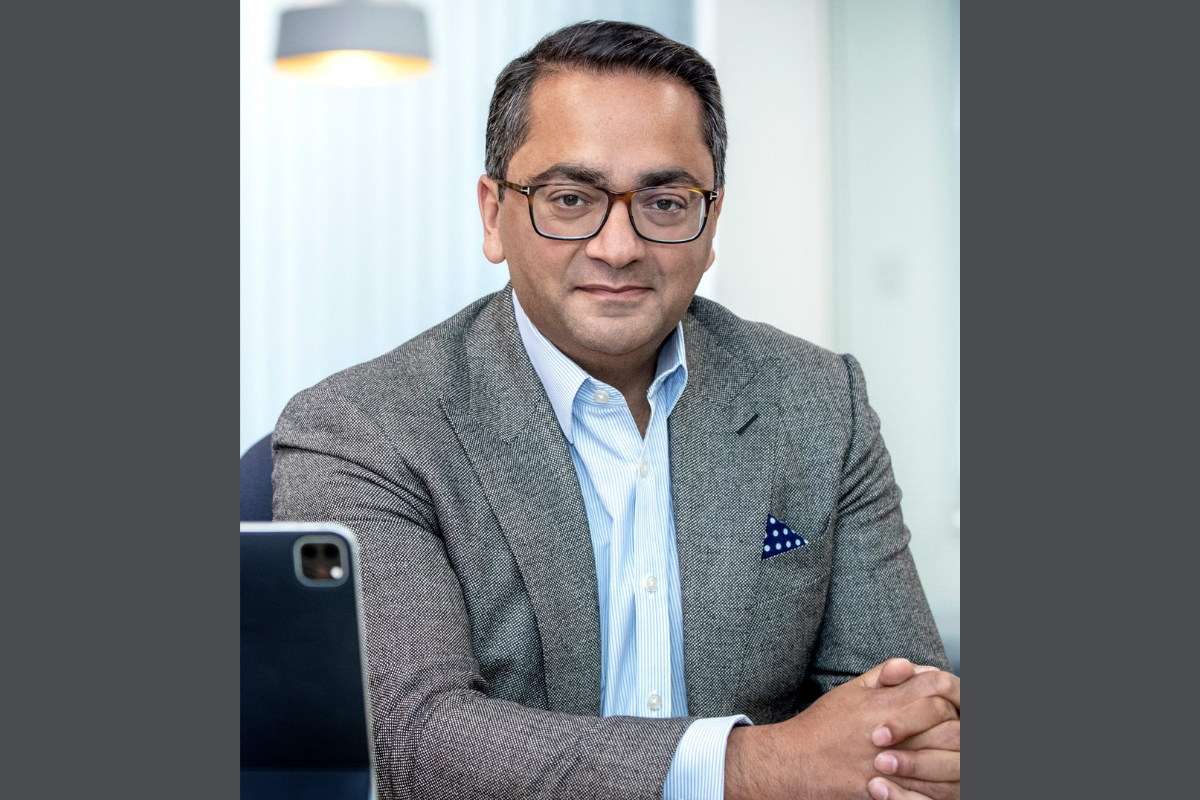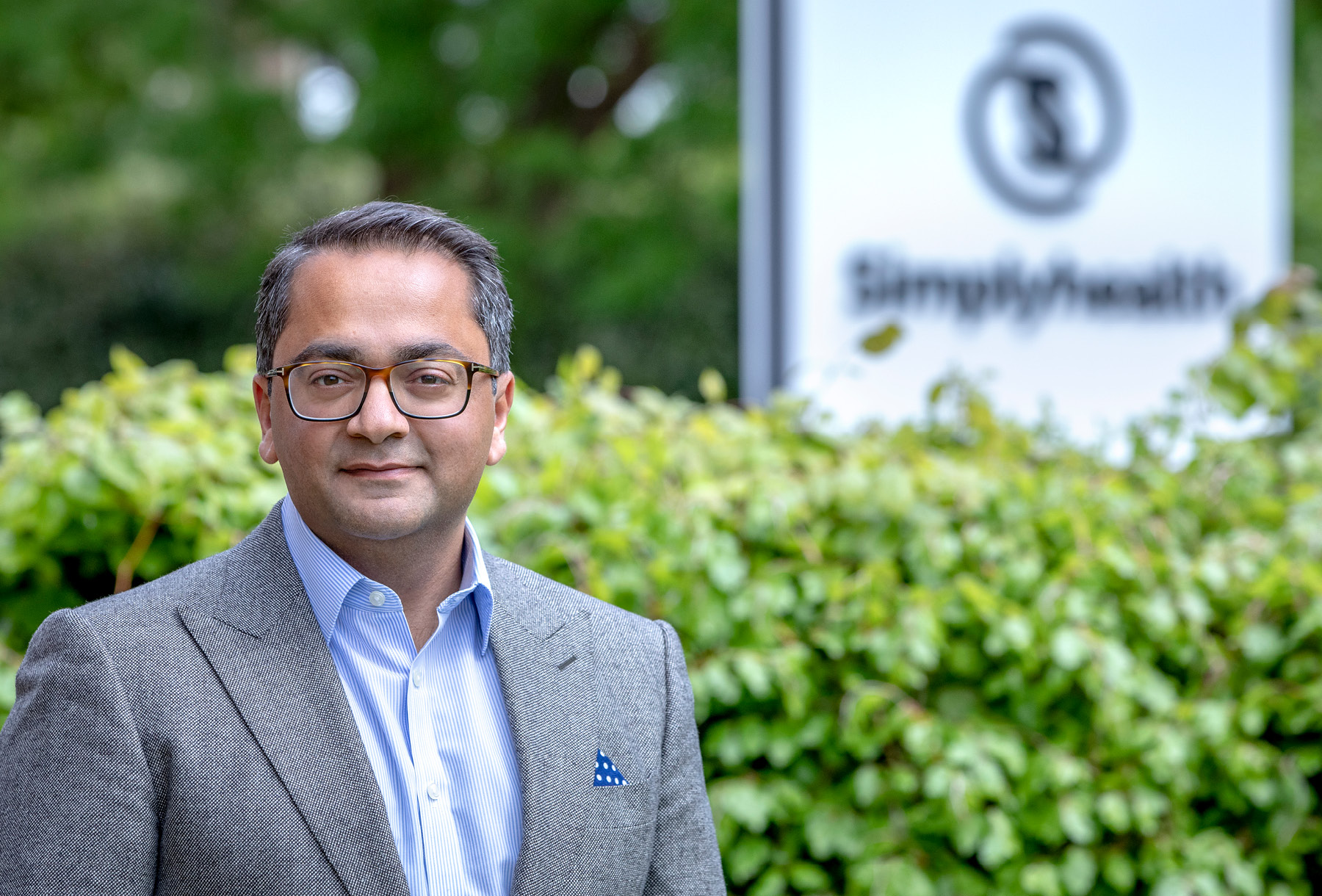Simplyhealth is far from your average health plan provider. Indeed, within minutes of speaking to CEO Dr Sneh Khemka, it becomes absolutely clear that this is a company that prides itself on purpose, rather than profits.

“We are created for the good of society – our achievement is measured through the impact we make on people’s health and society,” he explains. “It’s a business, but all the profits that we make are reinvested into delivering on our purpose. And our purpose is to improve access to healthcare for all in the UK.”
In fact, it is for precisely this reason that Sneh first took on the role a year-and-a-half ago. “I knew that I would have the opportunity to make a meaningful impact on society and health care,” he says.
It’s a model that Sneh wishes more companies would adopt because it’s not just about returning value to shareholders, it’s about returning value to communities. In recognition of its efforts, Simplyhealth was recently awarded B Corp status.
“Changing your company into being a purpose-led company is such a gratifying and meaningful thing,” he says. “I think we should be measuring ourselves on societal impact, longevity, sustainability, making differences to people’s lives and supporting the world. That’s actually how macro we should do it.”

On a mission
With a history spanning 150 years, Simplyhealth boasts an almost unrivalled level of experience, especially given the National Health Service (NHS) was only established in 1948. Today, Simplyhealth is providing support to more than three million people.
As a trained ophthalmic surgeon who previously worked for the NHS for 15 years, Sneh has had first-hand experience of the issues that surround the UK’s national healthcare system, which has made him even more determined to fix things.

I think we should be measuring ourselves on societal impact, longevity, sustainability, making differences to people’s lives and supporting the world. That’s actually how macro we should do it.
In particular, he recognises that the NHS is very much, what he calls the “national sickness service”, where you turn to if you’re unwell. “But if you want to stay healthy, there isn’t anywhere for you to go. The NHS has never really done health promotion properly,” he says.
Sneh is on a mission to ensure that all demographics realise that they can access this support. “When I took on the role, the customer base was reflected in the fact that we’re 150 years old,” he says.
To this end, Sneh has focused on significant investment in updating the technology at Simplyhealth and bringing in a brand new digital architecture to meet modern needs. The company aims to see 95 per cent of its claims automated without any human intervention, which will improve the speed for customers getting their claims satisfied.
“At the same time, we want to ensure that, without the current culture of very human hand-holding when dealing with customers, even within a digital environment our customers continue to have that excellence in service,” he explains.
Empowering staff
As a leader, Sneh favours an approach that sees his staff feeling empowered and supported to make their own decisions. “The only way to be a successful CEO is to gather a team around you who are incentivised, stimulated and given the right objectives,” he says.
“My job is to make sure that they are brought into the right mindset and vision, believe in the fabric of what we’re trying to create and are empowered and capable of executing against that. Today, the workforce will not accept having a boss. What they will look for is an inspirational leader who will have some degree of command and control, but the leadership qualities are about coaching, about inquisitive questioning, about helping people to come to their own realisations.”

My job is to make sure that they are brought into the right mindset and vision, believe in the fabric of what we’re trying to create and are empowered and capable of executing against that.
As the organisation is regulated by the Financial Conduct Authority and Prudential Regulation Authority, as part of the regulatory framework, Simplyhealth are obligated to conduct rigorous diligence on suppliers. “Because of the nature of the questions you need to ask, and the nature of the investigation you need to make into that third-party supplier, you get to understand their business extremely well,” Sneh explains.
“And so, you’re always mandated to forge very deep relationships through this. What’s seen by some as a regulatory hurdle is actually an opportunity for us to really understand how the key suppliers work, what their issues are, what makes them successful and, therefore, what makes us successful.”
Giving back
This altruistic approach to doing business is also something that Simplyhealth prioritises when looking for partners. “We give a million pounds of our revenue away to charity every year,” Sneh says. “We look for a similar charitable bent in our supply chain as well. We preferentially contract with third-party suppliers who have a similar governance principle to us.”
Ultimately, Sneh is keen to reinforce that people shouldn’t think of Simplyhealth as a health insurance company. “We are a health solutions company,” he emphasises. “We are there for the average man and woman on the street, for the working and middle-class backbone of Britain, the 60 million people in this country who have a need for health care but don’t know how to access it and can’t afford to access it.”
And now, as Simplyhealth evolves into its next incarnation, out of the shadows of its 150-year history and into a modern, digital health player, there is scope for it to fulfil its goal. “We aim to become the second biggest brand in health care in the UK, behind the NHS,” Sneh says.
“It’s a big aspiration, but there’s nobody occupying that space right now. And I think we’ve got a unique opportunity to do that.”


